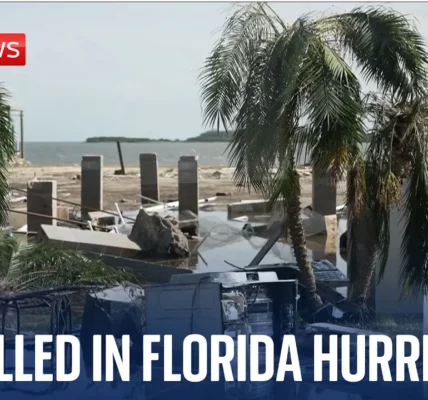Grenfell Tower: Accountability and Lessons Learned from the Tragedy

This article delves into the critical discussions surrounding the Grenfell Tower tragedy, highlighting government accountability and the ongoing challenges in addressing building safety standards. Join us as we explore the implications of recent reports and the political landscape influencing energy security and net zero initiatives.
Introduction
The Grenfell Tower fire in June 2017 was a watershed moment in UK history, exposing severe deficiencies in building safety regulations and government accountability. As reports detailing these failures surface, it is imperative that all stakeholders recognize their responsibilities in ensuring the safety of residents in high-rise buildings. This article examines the key points raised by the Shadow Secretary of State for Energy Security and Net Zero, regarding accountability for past failures and the ongoing efforts to rectify building safety issues across the nation.
Understanding the Grenfell Tower Tragedy
The Grenfell Tower fire tragically claimed 72 lives and exposed systemic failures in building safety practices. Following a detailed report, it was revealed that there were lapses at multiple levels of government, regulatory bodies, and construction practices.
Key Findings from the Report
- Long-standing deficiencies in building regulations dating back to the 1990s.
- A lack of accountability at various governmental levels.
- Insufficient action on removing flammable cladding from residential buildings.
As the Shadow Secretary highlighted, it is crucial to learn from these failures to prevent future tragedies.
Government Accountability and Responsibility
In response to the findings, there is a pressing need for government officials, both past and present, to take responsibility for their roles in the Grenfell Tower tragedy. The recent discussions reflect a collective acknowledgment that accountability must extend beyond one individual or administration.
Collective Responsibility
It is essential that all parties involved—past governments, regulatory bodies, and construction firms—are held to account. The Shadow Secretary underscored this notion by stating:
“Nobody should be exempt from accountability.”
Efforts Towards Justice for Victims
- Implementing new safety regulations for high-rise buildings.
- Ensuring the swift removal of dangerous cladding.
- Engaging with victims’ families to understand their needs and expectations.
These steps are crucial in restoring public trust and ensuring that the systemic failures witnessed do not recur.
The Current State of Building Safety Regulations
Despite some progress, as noted by the Shadow Secretary, only 12% of buildings with flammable cladding have had it removed since the tragedy. This statistic raises significant concerns about the pace of remediation efforts.
Funding and Resource Allocation
The government allocated £5 billion for remediation efforts, prioritizing high-risk buildings first. However, the need for a more comprehensive strategy remains evident.
Moving Forward
It is vital for the government and local authorities to collaborate closely to expedite the removal of dangerous materials. The commitment to transparency in these efforts will be crucial for public confidence.
Political Implications and Leadership Challenges
The Grenfell Tower tragedy has not only highlighted deficiencies in building regulations but has also influenced the political landscape in the UK. Discussions around leadership challenges within the Conservative Party and issues such as immigration and human rights continue to dominate political discourse.
Leadership Dynamics
Recent leadership contests have seen candidates vying to present fresh perspectives, with a focus on tackling pressing issues like immigration and safety regulations.
The Role of New Leadership
New candidates like Kemi Badenoch have emerged, promising a modern approach to politics that emphasizes accountability and innovative solutions.
Conclusion
The Grenfell Tower tragedy serves as a stark reminder of the need for robust safety regulations and government accountability. As discussions continue regarding the implications of recent reports, it is essential that all stakeholders commit to addressing the challenges head-on. The Shadow Secretary’s insights underscore the importance of learning from past mistakes and implementing necessary reforms to protect future generations. We must all advocate for justice, transparency, and proactive measures to ensure that the failures of the past do not repeat. For further reading on political accountability and building safety reforms, explore our related articles.
“`




